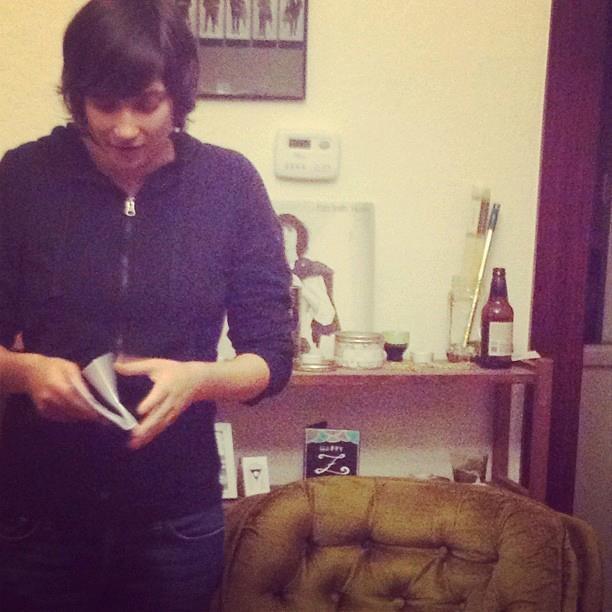Conversation about Erika Staiti's 'The Undying Present'
Social reading number one

Erika Staiti lives in Oakland and comes back to New York, where she’s from, about twice a year.
***
The first thing I notice in the excerpt from The Undying Present is Staiti’s use of multiple and switching pronouns and the determined unnaming of characters. It has an effect of denuding the narrative, by generalizing the action, muting agency.
We readers are instructed that something else is happening, something structural, not personality-based, although the central action is driven by a narrator.
I find it striking that despite the removal of affective signs and deictic relations between particulars, an assertive and deep affect remains palpable.
“Sun warms the skin but burns it sometimes too. They roll down the window for some air and then roll it back when the wind picks up. This is how the days go by. Staring straight ahead. Marching down a city street or running. Statements made and never heard. Hearing fails. Blood sheds daily.”
What do mean when you say affect?
I mean visceral emotion that lingers. The goopy stuff that is between things.
There is something S&M about The Undying Present.
The title is from a poem in Les Guérillères, Monique Wittig's 1969 feminist novel.
"A woman is dancing. She wears a tight silver bodice. Another woman stands against the wall with dark frizzy hair. She wears red. Two men are kissing in the center of the stage. One has a dark moustache and the other is blonde and smooth and looks very young.
Something happens to the dancing woman. She writhes on the ground. Was she shot?"
Ephemerality directed towards the reader to juggle before evaporation.
“After a while one of us pulls our hand away from the other and we both change the positions of our arms and legs.”
Under erasure, constant revision: questions left by Staiti’s outlines and silhouettes must only be answered in multiples, of bodies, desires, expirations hiding from each other, revealed in the reading, by the readers: for how long can a hand be held?
“My double is walking through the building probably down the long hallway and when she is ready she will walk down the large and elegant marble stairs in hopes of encountering the arrival of the new the new one of us or maybe it will be me or maybe an old one.”
In a narrative that is about an underground replete with unspoken dynamics that are probably sado-masochistic, the open field of the mystery is significant. The narrative is not master of its own mystery. The narrator is not in control.
“False harmony warms the network. Secrets eat through the spaces between bodies.”
There is something going on in The Undying Present but it's a secret. There is a necessity of uncovering the mystery, the structural body of the scene that can't be addressed singularly by the author who is included in it. How are we going to be asked to question the surface? To get to the matter, when intimacy lapses. The reader is being asked to help.
Social reading